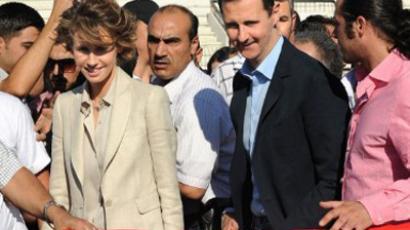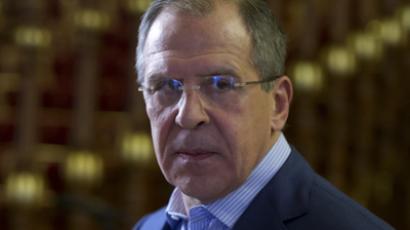EU to push new Syria sanctions
The EU is preparing a new batch of sanctions against Syria, which France says will be the harshest yet. The move came amid conflicting reports about new attacks in Homs.
"Europe will again harden sanctions imposed on the Syrian regime,” French Foreign Minister Alain Juppe said on Sunday, according to AFP. “We will try to increase this international pressure and there will come a time when the regime will have to realize that it is completely isolated and cannot continue."France has also proposed setting up a contact group on Syria to implement initiatives by the League of Arab States for ensuring a peaceful transfer of power in Syria and for stepping up international pressure on Damascus.Meanwhile, numerous reports are coming in from Syrian rebels stating that government forces have launched another assault on Homs killing at least 50. But government and state-media claim the attacks were staged.
Russia: Western reaction to UN Syria veto 'hysterical'
With no clear picture of exactly what is happening in Syria – most journalists reporting on the situation are outside the country – it is hard to know what Western allies at the UN base their assertions on.Dissatisfied with the wording of the latest UN draft resolution, Russia and China vetoed the proposal, which they believed contained disturbing echoes of Libya and left the door open to possible foreign military intervention.Russian Foreign Minister Sergey Lavrov and Foreign Intelligence chief Mikhail Fradkov are to head to Damascus on Tuesday for talks with Syria’s President Assad. Lavrov says details of the meeting cannot be disclosed at this stage.There has been swift reaction to the veto from the West. Governments lined up to condemn the veto, with France saying Russia and China would now bear a moral responsibility for the violence in Syria."I believe that the process of the Security Council has been paralyzed with the veto issued by Russia and China,” AP quoted French Foreign Minister Alain Juppe as saying. “They imposed on the UN Security Council a moral stain, because what is happening in Syria is totally unacceptable.”Sergey Lavrov dubbed the West’s reaction “hysterical.”"Some voices from the West, evaluating the result of the vote in the UN Security Council over the Syrian resolution, sound inappropriately, I would say, on the verge of hysterics,” he said at a Moscow press conference on Monday.He added that the authors of the draft resolution had demonstrated their disrespect towards Russia, by choosing to move to a vote before Russian diplomats returned from Damascus.Lavrov and Russia's Foreign Intelligence chief Mikhail Fradkov are set to head to Damascus on Tuesday for talks with Syria’s President Assad. However, Lavrov said details of the meeting would remain confidential for the moment.
Multiple reasons behind Western policy on Syria
John Laughland, a political analyst from The Institute of Democracy and Cooperation, thinks there are multiple reasons behind the West’s persistent attempts to push through a resolution on Syria.“It is part of the general program of regime change in the Middle East. The Arab Spring is in fact a program of installing pro-Western regimes across the Arab world,” he said.“Behind Syria there is the far more important target of Iran. Syria is one of Iran’s most important allies in the world and certainly in the Middle East, so whoever targets Syria targets Iran,” Laughland elaborated.“But there is another element to this,” he said, “another target behind these constant attacks on Syria, and that is of course Russia herself.”Laughland believes that the reason why Western countries Britain, France and the US have repeatedly brought draft resolutions on Syria to the UN Security council, knowing that Russia and China would not accept them, “is precisely in order to paint Russia in the eyes of the Western public as supporting a bloody tyranny, namely President Assad’s regime in Syria."“The very drafting of this proposed resolution is itself a diplomatic attack on Russia,” the analyst asserted.














